-

email us
lisa@simplewatersofteners.com
-

Call Us
(210) 960-2555
- Home > BLOG
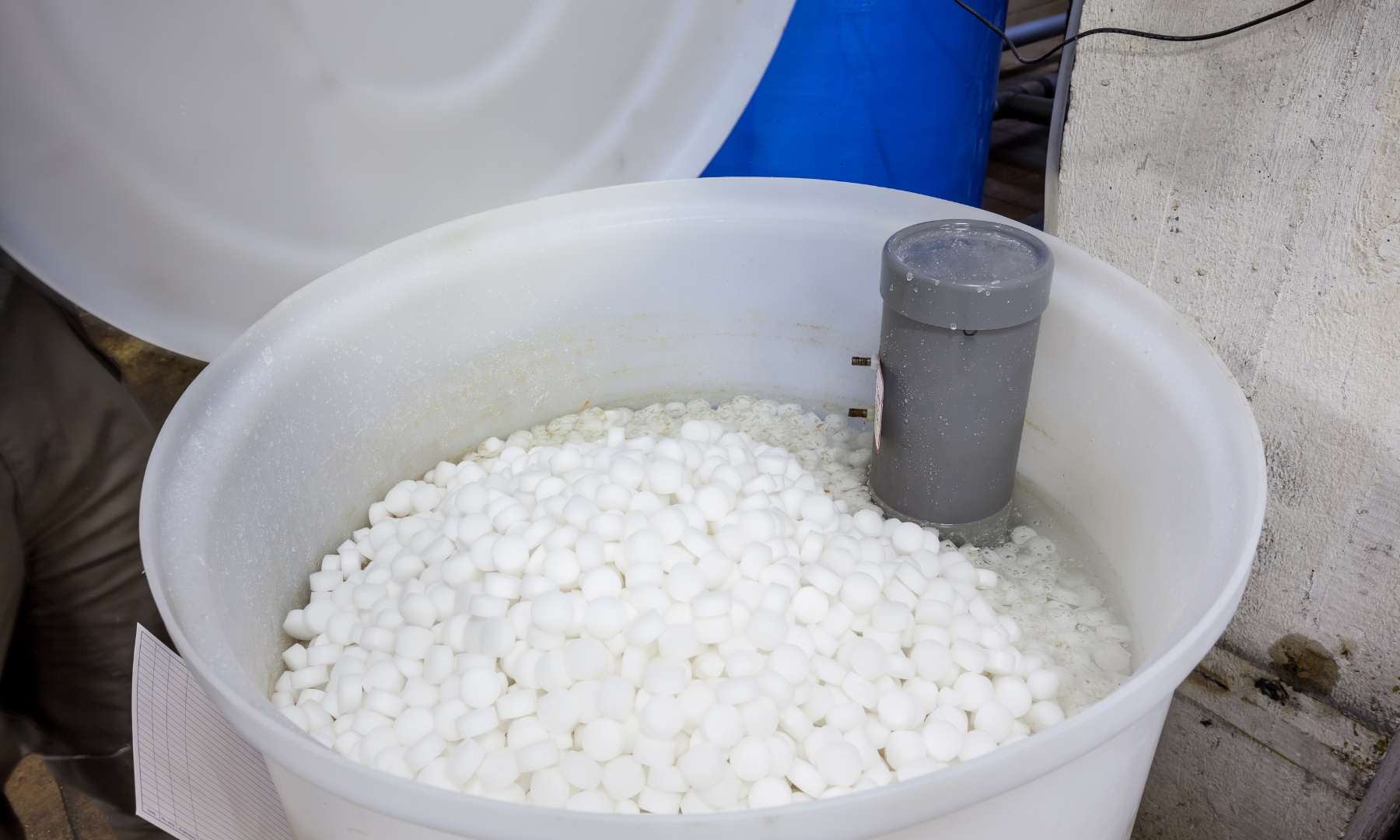
10 Jul. 2024
Most Common Issue When Your Water Softener Isn’t Working
Water softeners have become much easier to troubleshoot than in the past. While repairing a water softener can be challenging, with the right knowledge, you can fix common issues and get your system back up and running in no time.
The Most Common Issue: Salt Bridges
One of the most common issues with water softeners, especially in humid climates, is the formation of a salt bridge in the brine tank. This occurs when salt becomes hard and caked together, preventing it from dissolving properly during the regeneration cycle.
Identifying a Salt Bridge
When you add too much salt to the brine tank, the salt can harden above the water line, forming a bridge. The softener unit regenerates and washes the salt out of the bottom of the tank during the cycle, but the hardened salt above the water line doesn’t fall to the bottom. To check for a salt bridge, gently tap the outside of the tank. If it sounds hollow, a salt bridge may have formed.
Breaking Up a Salt Bridge
Most brine tanks have a plastic plate about six inches from the bottom. Be careful not to damage this plate when breaking up the salt. Here’s how you can break up a salt bridge safely:
- Use a Broomstick: Insert a broomstick or similar object into the tank and gently break up the salt. Avoid poking all the way to the bottom to prevent damaging the plastic plate.
- Hot Water Method: If the salt is particularly stubborn, pour a pitcher of very hot water around the edges of the tank. This will help dissolve the hardened salt. Then, tap around the edges to encourage the salt to fall to the bottom.
- Kick Method: Some people give the brine tank a swift kick to break up the salt bridge. Be gentle to avoid damaging the tank.
For visual learners, YouTube has several helpful videos on breaking up a salt bridge.
Why a Salt Bridge Matters
The water softener unit requires brine water (salty water) to wash the resin during regeneration. This process helps remove calcium from the resin beads, which is then washed down the drain. Without proper brine water, the unit regenerates with plain water, which does not remove calcium from the beads. Consequently, the beads remain full of calcium, and hard water continues to flow into your home.
Manual Regeneration Cycle
After breaking up a salt bridge, manually regenerate the system. Allow the salt and water to sit for about four hours to create brine water. Once regenerated, the cold water should be soft immediately, but it may take a few days for the hot water to become soft again if hard water has been an issue.
When to Call a Professional
If you do not find a salt bridge or the issue persists, it’s time to call a professional. Simple Water Softeners repairs many brands and can help diagnose and fix the problem. Give us a call at (210) 960-2555, and we’ll assist you in resolving your water softener issues.
By addressing these common problems, you can ensure your water softener operates efficiently, providing your home with the soft water it needs.
- By:Lisa Bauer

12 Jun. 2024
The Impact of High Temperatures on Water Quality
- Increased Mineral Concentration
-
- During summer, water levels in reservoirs and rivers can drop due to evaporation. This results in higher concentrations of minerals like calcium and magnesium in the water supply. These minerals contribute to water hardness, which can cause scaling in pipes, reduce the effectiveness of soap and detergents, and leave unsightly spots on dishes and fixtures. Water hardness does fluctuate.
- Higher Water Usage
- Hot weather often leads to increased water usage as people take more showers, fill up swimming pools, and water their lawns and gardens more frequently. This spike in demand can strain municipal water supplies, sometimes leading to temporary compromises in water quality.
- Biological Contaminants
- Warm temperatures can promote the growth of bacteria and algae in water sources. While municipal water treatment facilities are equipped to handle these contaminants, occasional lapses can occur, especially during peak usage times.A UV light will guarantee you to have no bacteria in your water.
How Water Softeners Help
- Removing Hard Minerals
- Water softeners are designed to remove calcium and magnesium ions from your water through a process called ion exchange. This process replaces hard minerals with sodium or potassium ions, resulting in softer water that is gentler on your plumbing and appliances.
- Protecting Your Appliances
- Soft water helps prevent the buildup of scale in your water heater, dishwasher, and other appliances. This not only extends their lifespan but also ensures they operate more efficiently, saving you money on energy bills.
- Improving Skin and Hair Health
- Soft water is kinder to your skin and hair. Hard water can strip away natural oils, leading to dryness and irritation. By using a water softener, you can enjoy softer, smoother skin and hair, even during the hottest months.
- Enhanced Cleaning Efficiency
- With soft water, soaps and detergents lather better and rinse more completely. This means cleaner clothes, dishes, and surfaces with less effort and fewer cleaning products.
Tips for Keeping Your Water Soft During Summer
- Regular Maintenance
- Ensure your water softener is properly maintained. Check the salt levels in the brine tank regularly and add salt as needed. Clean the brine tank periodically to prevent salt bridges and other issues.
- Monitor Water Usage
- Be mindful of your water usage during peak times. Your valve will tell you how much water goes into the house every day for the last 63 days. Watch the flow rate meter to detect if there is a leak in the house. This will make you a good neighbor and ensure your house is running correctly in many aspects.
- Consider a Whole House Filter
- Installing a Whole House Filter can help remove chemicals (Chlorine, Herbicides, Pesticides and Organics) from your water before it reaches the water softener. This can improve the efficiency and lifespan of your water softening system.
- Schedule Professional Inspections
- Have a professional inspect your water softener system when you are having issues. People who are licensed in Water Treatment from the State of Texas, know how to repair water softeners. People who do not know how to repair will say replace. If you have bought off the internet or a big box store you will probably dispose of and start over. But if you bought a high quality system reach out to someone to repair the system will probably be kept going for 12 to 15 years plus.
Conclusion
Maintaining soft water quality during the summer months is essential for protecting your home’s plumbing, appliances, and your family’s well-being. By understanding the impact of high temperatures on water quality and taking proactive steps with your water softener, you can enjoy the benefits of soft water all summer long. For more tips and professional assistance, contact Simple Water Softeners at (210) 960-2555. We’re here to help you keep your water soft and your home running smoothly, no matter the season.
- By:Lisa Bauer
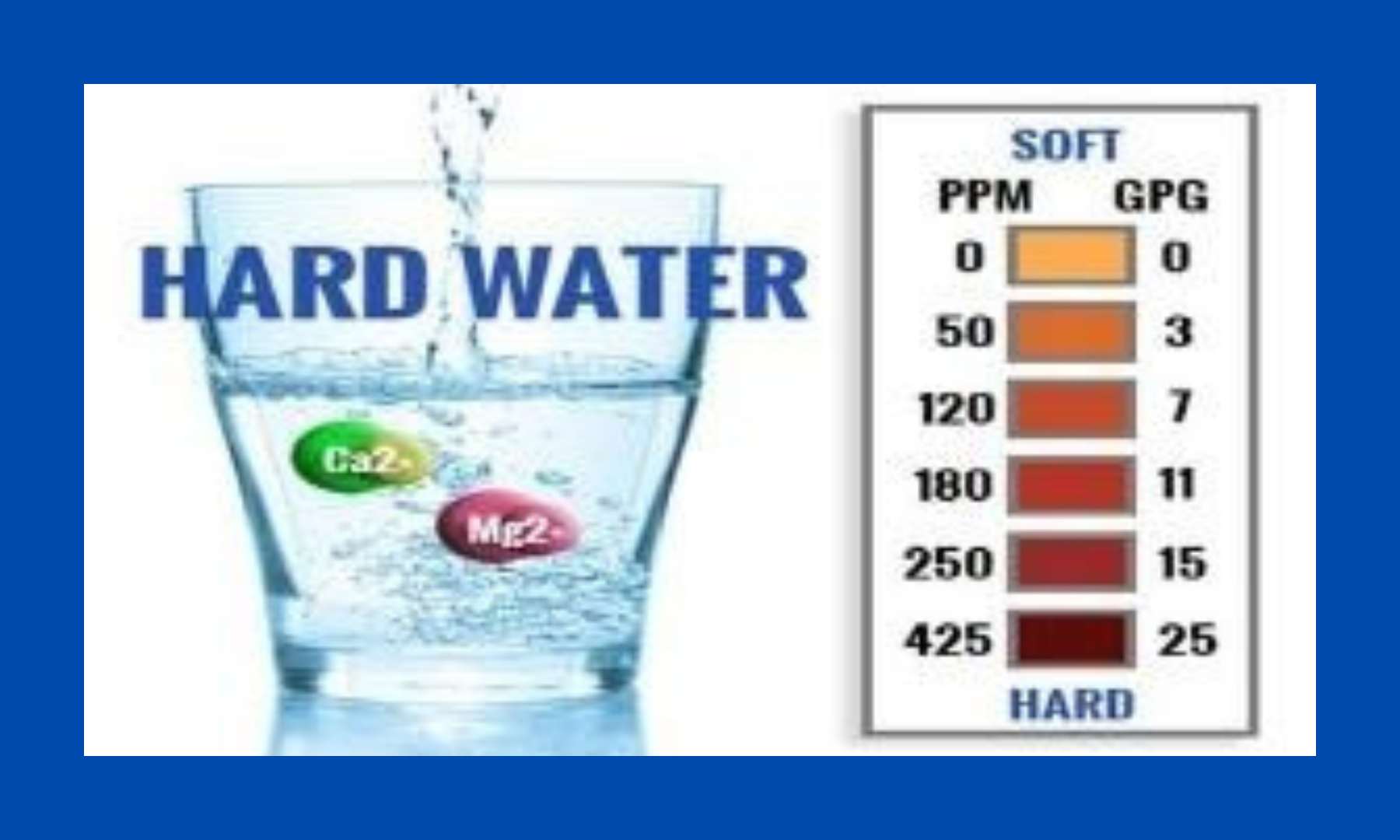
15 May. 2024
Maximize Your Water Quality: Simple Water Softeners’ Water Hardness Calculator
Remember to check out Simple Water Softeners’ Water Hardness Calculator! If you’re experiencing issues like scale buildup on your fixtures and appliances or dry skin and hair, hard water might be the culprit. Our Water Hardness Calculator is here to help you identify your water’s hardness level and find the perfect solution.
What is the Water Hardness Calculator?
Our Water Hardness Calculator is an easy-to-use online tool designed to help you determine the hardness of your water. By simply entering a few details about your location, you can get an accurate reading of your water’s hardness level. This information is crucial for selecting the right water softener system for your needs.
Why Use the Water Hardness Calculator?
Using our Water Hardness Calculator offers several benefits:
- Accurate Readings: Get precise information about the hardness level of your water, so you can make informed decisions.
- Customized Solutions: Based on the hardness level, find the best water softener system tailored to your specific needs.
- Cost Savings: Avoid unnecessary expenses by choosing the right system from the start, preventing potential damage to your plumbing and appliances.
- Improved Health and Comfort: Enjoy softer skin and hair, and extend the lifespan of your household appliances.
How to Use the Water Hardness Calculator
Using the Water Hardness Calculator is simple:
- Visit the Simple Water Softeners website.
- Navigate to the Water Hardness Calculator page.
- Enter your location details.
- Get your water hardness results instantly.
Ready to take control of your water quality? Head over to our Water Hardness Calculator and find out your water’s hardness level today!
If you have any questions or need further assistance, don’t hesitate to reach out. Contact Lisa at Simple Water Softeners for personalized support and more information.
Transform your water and your home with Simple Water Softeners – because you deserve the best!
- By:Lisa Bauer
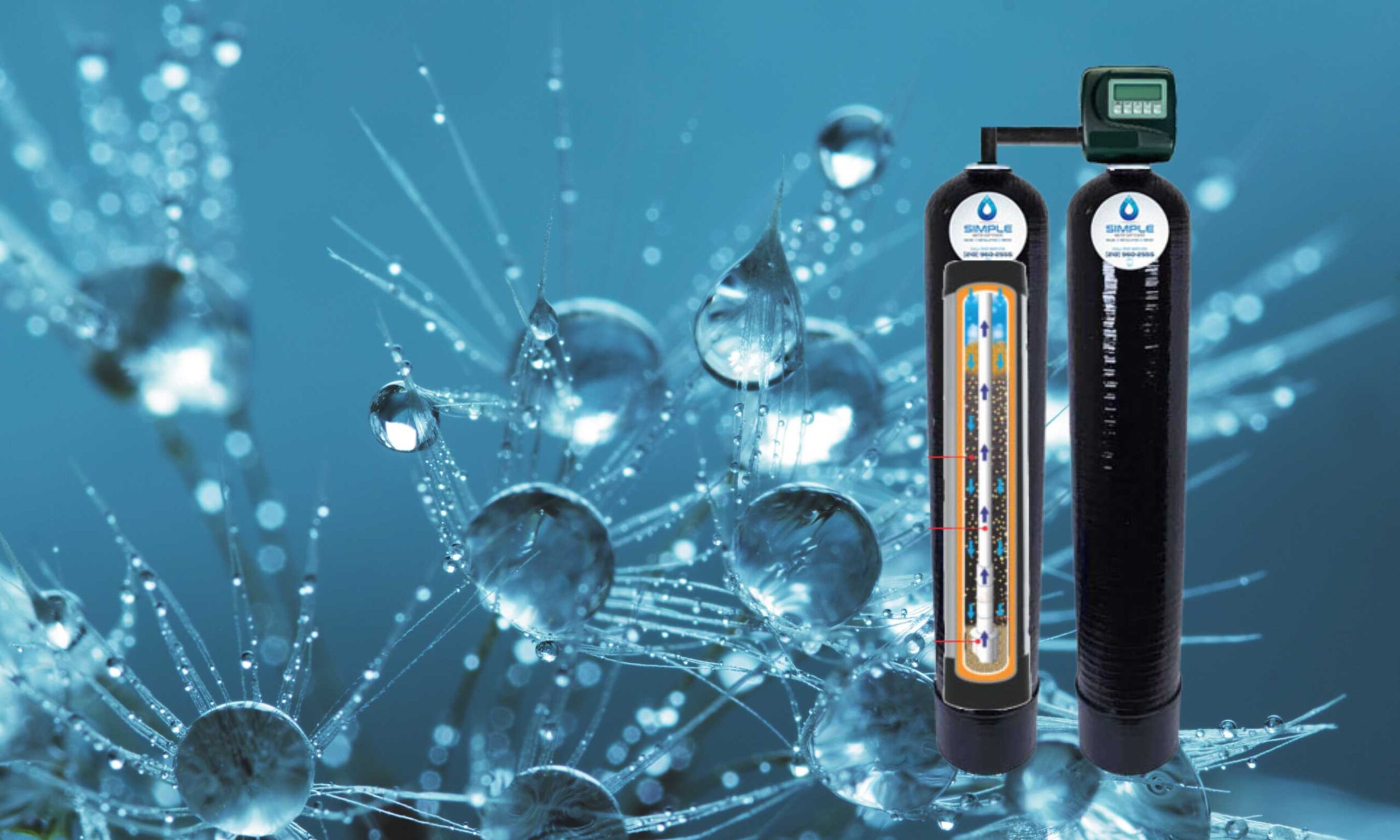
03 Apr. 2024
The Science Behind Water Softening: How It Works and Why It Matters for San Antonio Homes
Water softening is a crucial process for many homeowners in San Antonio, where the tap water is known for its hardness. This hard water can lead to various issues, from scale buildup in plumbing to inefficiencies in home appliances. Understanding the science behind water softening and its benefits can help San Antonio residents make informed decisions about managing their water quality. This article explores how water softeners work and why they are essential for homes in the region.
The Hard Water Challenge in San Antonio
San Antonio’s water supply is characterized by high levels of minerals, primarily calcium and magnesium, which make the water “hard.” While not harmful to health, these minerals can cause lime-scale buildup in pipes and appliances, reducing efficiency and leading to costly repairs. Hard water also affects soap’s ability to lather, leading to higher consumption of cleaning products and a less satisfying bathing experience.
How Water Softeners Work
Water softeners address the hard water problem through a process known as ion exchange. The science is straightforward but effective:
- Ion Exchange Resin: Water softeners contain a resin bed filled with tiny ion exchange resin beads. These beads are charged with sodium ions (salt).
- Hard Water Treatment: As hard water passes through the resin bed, the calcium, and magnesium ions, which cause water hardness, are attracted to and held by the resin beads.
- Ion Replacement: Simultaneously, the resin beads release their sodium ions into the water in exchange for the hard water minerals. This process effectively “softens” the water by removing the minerals that cause hardness.
- Regeneration: After a certain period, the resin beads become saturated with calcium and magnesium ions. The water softener enters a regeneration cycle, flushing the beads with a strong brine solution. The high concentration of salt in the brine displaces the calcium and magnesium, renewing the resin bed and preparing it for more softening action.
Benefits of Water Softening for San Antonio Homes
- Extended Appliance Life
Soft water minimizes scale buildup in appliances like water heaters, dishwashers, and washing machines, extending their lifespan and maintaining their efficiency.
- Improved Cleaning Efficiency
Soft water reacts more effectively with soap and detergents, creating a better lather and reducing the amount of product needed for cleaning tasks.
- Enhanced Water Heating Efficiency
Scale buildup from hard water can insulate heating elements, making them less efficient. Soft water maintains the efficiency of water heaters, potentially lowering energy costs.
- Protection for Plumbing
Soft water reduces the risk of lime-scale deposits in plumbing, maintaining water flow and preventing blockages and corrosion over time.
- Better Skin and Hair
Soft water is gentler on the skin and hair, helping to maintain natural oils and preventing the dryness often associated with hard water.
For San Antonio homes grappling with hard water challenges, investing in a water softener is not just about enhancing the quality of water—it’s about protecting your home and improving your quality of life. Understanding the science behind water softening highlights its importance and benefits, providing a clear solution to the region’s water quality issues. By embracing water softening technology, San Antonio residents can enjoy cleaner, more efficient homes and a better overall water experience.
Don’t let hard water compromise your home and lifestyle.
Simple Water Softeners is here to help you tackle San Antonio’s unique water quality challenges head-on. Contact us today to explore the best water softening solutions tailored specifically for your home. Our team of experts is ready to guide you through selecting the perfect system to protect your appliances, plumbing, and ensure your family enjoys the comfort of soft water every day. Make the switch to soft water with Simple Water Softeners now, and take the first step towards a more efficient, comfortable home.
- By:Lisa Bauer
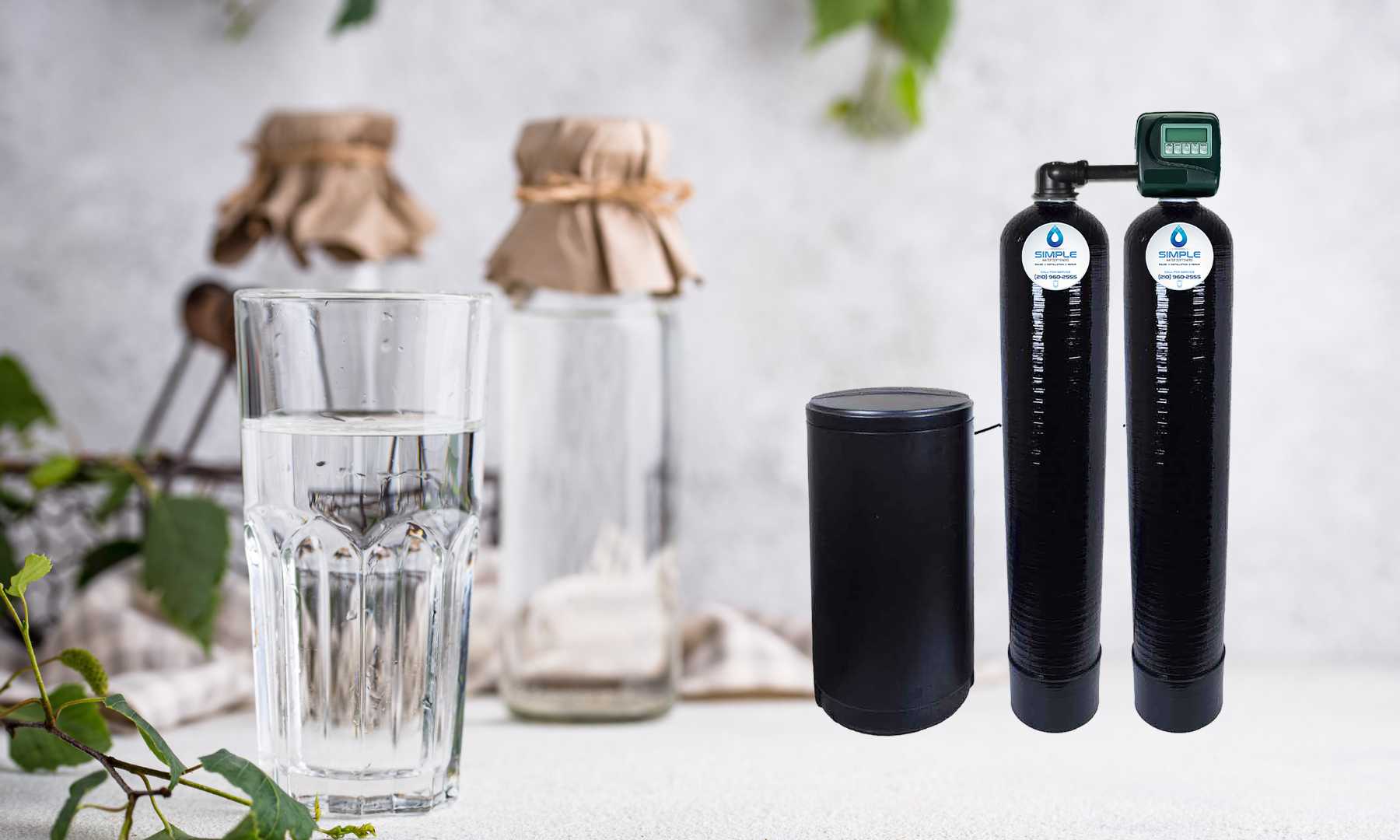
07 Mar. 2024
Spring Into Pure Water: Embrace Whole House Filtration This Season
As spring blossoms, bringing new life and freshness into the world, it’s the perfect time to reflect on the purity and quality of the water in your home. Spring symbolizes renewal and rejuvenation, and what better way to embrace this season than by ensuring your family has access to clean, safe drinking water? Whole House Filtration Systems are the cornerstone of a healthy home environment, filtering out contaminants and providing peace of mind.
- By:Lisa Bauer
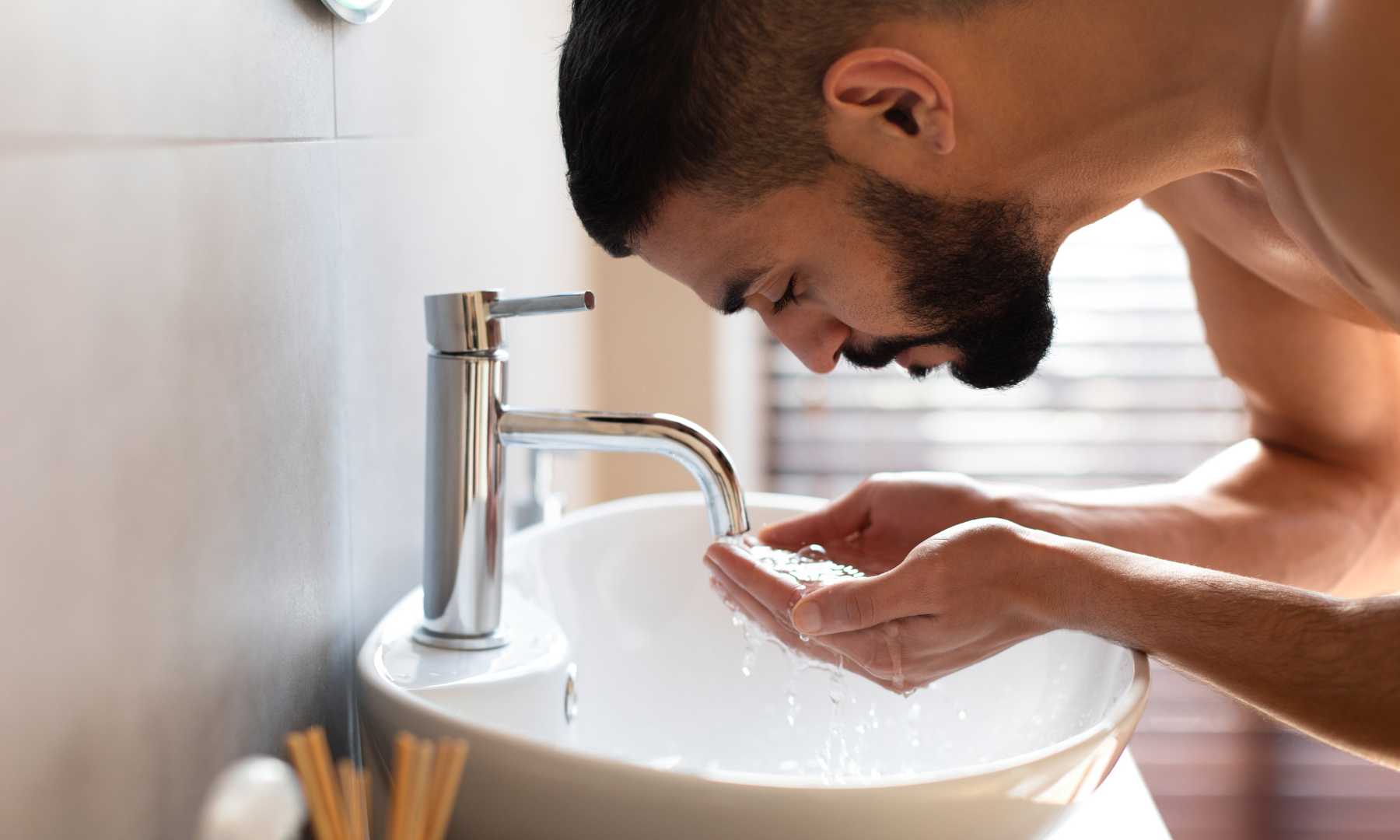
01 Feb. 2024
Winter Skincare: The Role of Soft Water in Hydration
Winter brings with it a magical atmosphere, but for our skin, it often means facing the challenges of harsh weather conditions. As the temperature drops, the air becomes drier, and many of us experience the discomfort of dry, itchy skin. If you’ve been battling winter skin blues, your water might be a silent culprit. In this blog post, we’ll explore the impact of hard water on your skin during the winter months and how a water softener can be a game-changer for achieving hydrated, healthy skin.
- By:Lisa Bauer
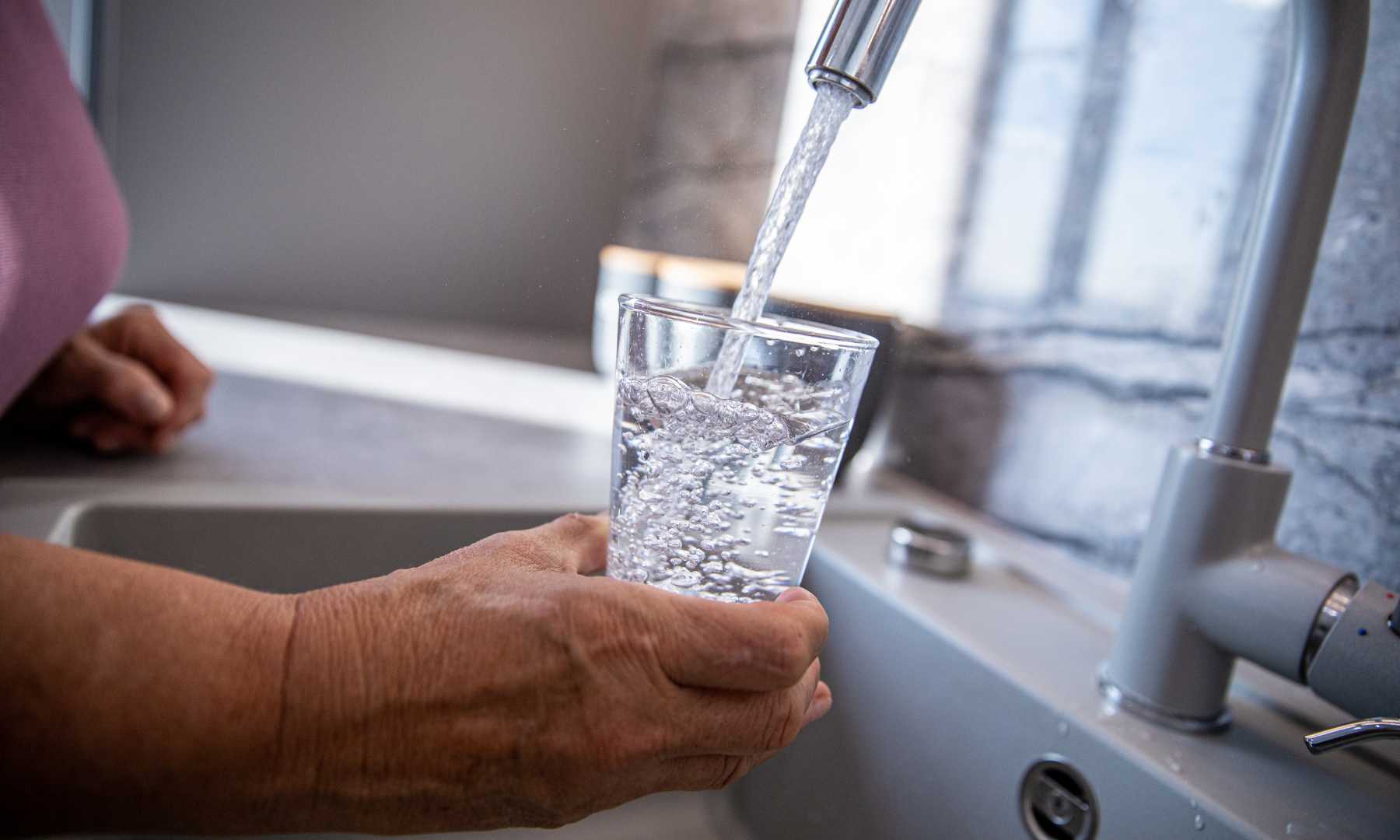
04 Jan. 2024
The Importance of Water Softening in Winter: Combatting Hard Water Challenges
As temperatures drop and winter takes hold, homeowners in Texas face a myriad of challenges, not least among them being the battle against hard water. While hard water is a year-round concern, winter uniquely intensifies its effects, making water softening an essential task for maintaining your home’s efficiency and comfort. In this post, we’ll explore why hard water becomes a more significant issue in winter and how a water softening system can be a game-changer.
- By:Lisa Bauer
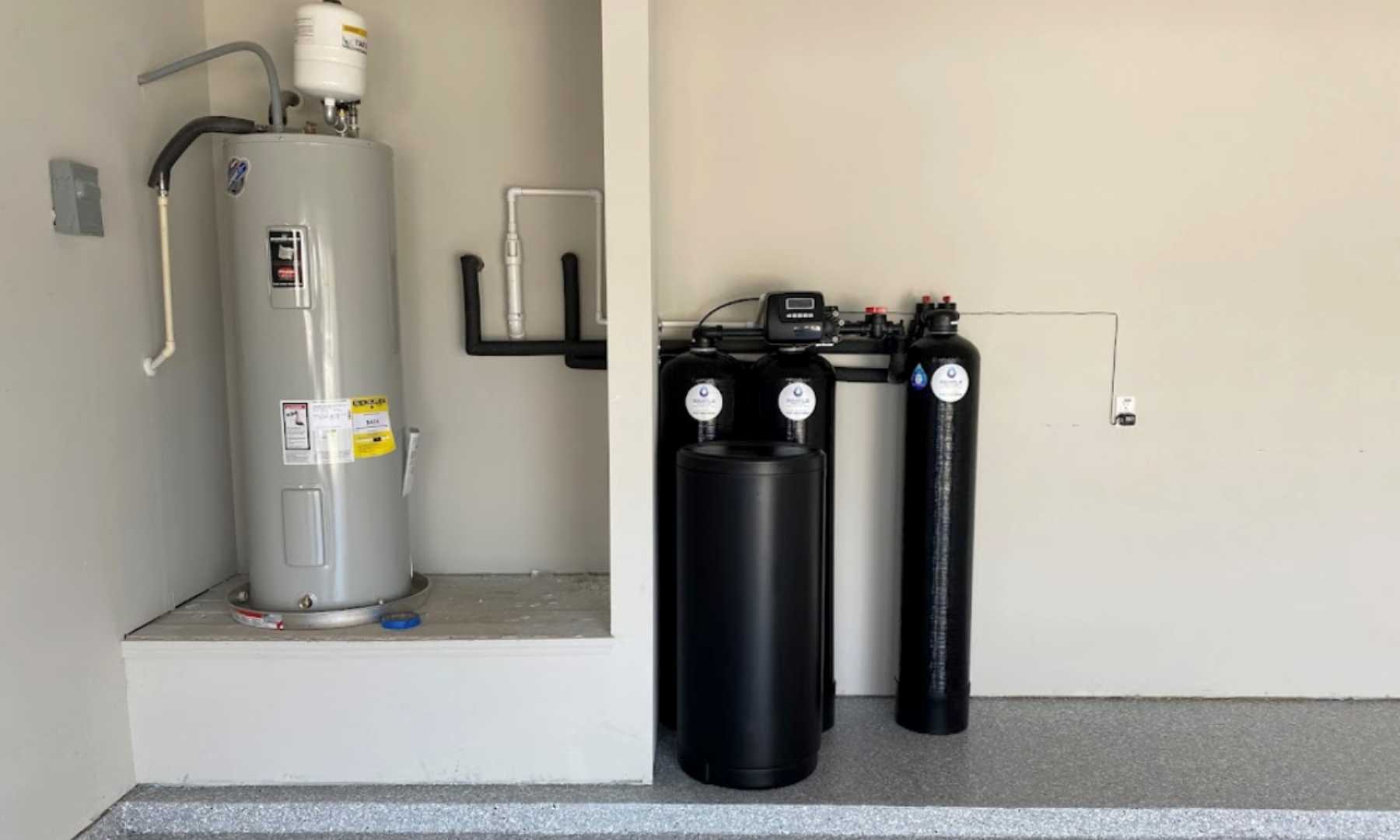
14 Dec. 2023
No Pre-Plumbing for a Water Softener? No Problem with Simple Water Softeners!
Thinking about enhancing your home’s water quality but worried about the absence of pre-existing plumbing for a water softener? Simple Water Softeners, San Antonio’s most affordable and reliable provider, is here to dispel your concerns. Specializing in water softeners and whole house filtration systems, we pride ourselves on using the highest quality components, all assembled right here in San Antonio.
- By:Lisa Bauer
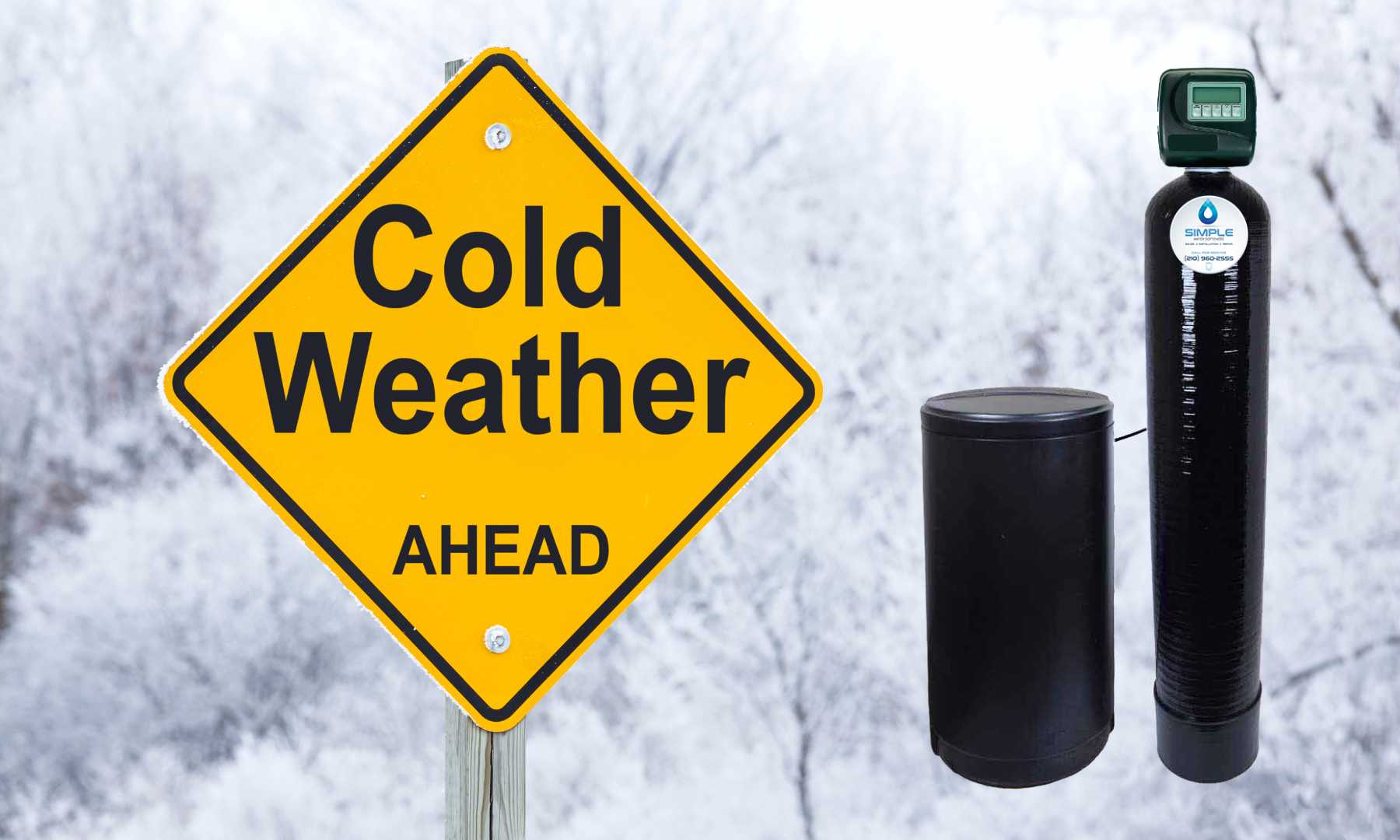
08 Dec. 2023
Understanding the Impact of Cold Weather on Water Softening Systems
As homeowners in cooler climates, particularly during the brisk winter months, it’s crucial to understand how the drop in temperature can impact the efficiency of water softening systems. While these systems are vital for managing hard water problems, cold weather introduces specific challenges that require attention and action. In this blog post, we’ll delve into how cold weather affects water softeners and provide practical tips for homeowners to ensure their systems remain efficient and effective throughout the winter.
- By:Lisa Bauer
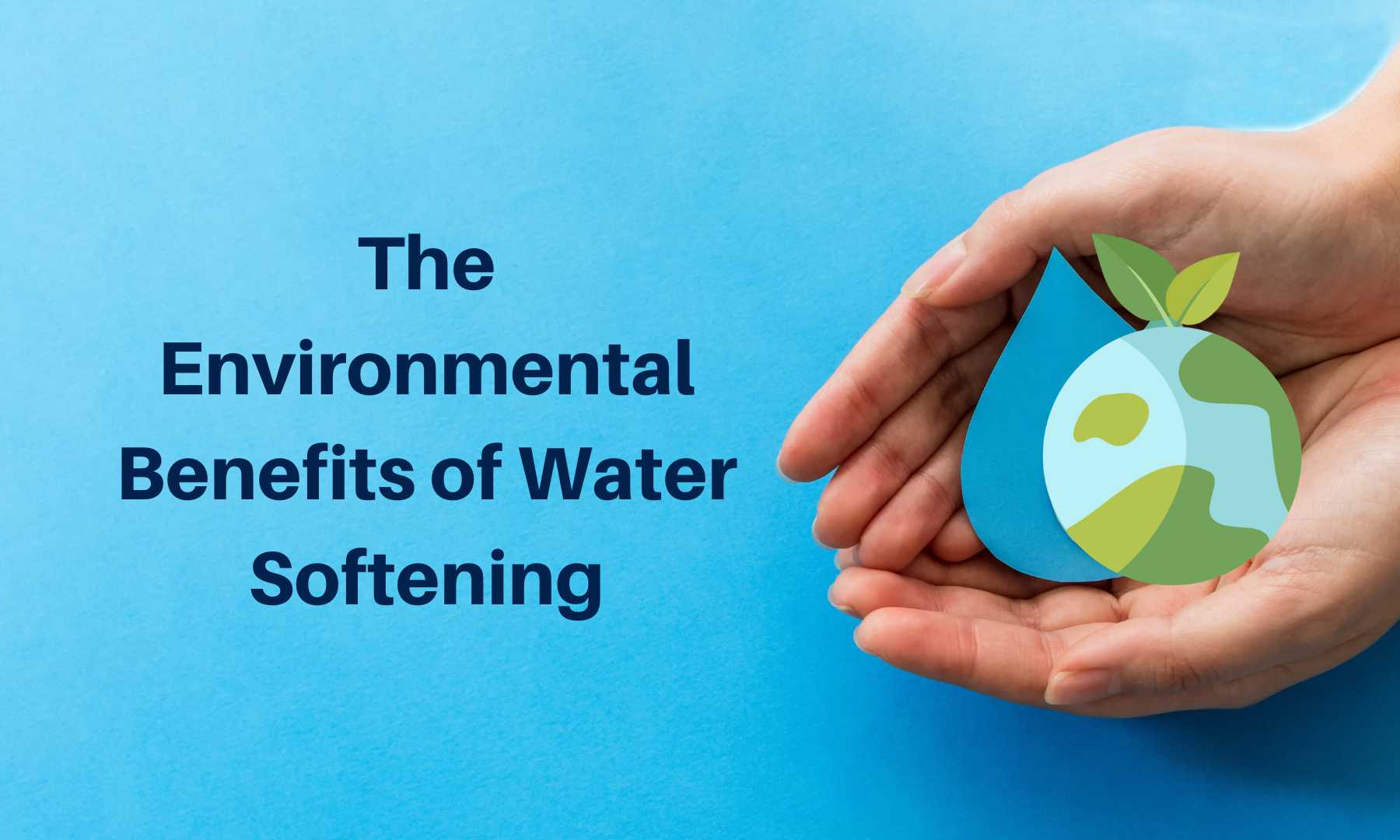
01 Nov. 2023
The Environmental Benefits of Water Softening
Water is our planet’s most precious resource, and conserving it in its purest form is crucial for our ecosystem. One aspect of water quality that’s often overlooked in environmental discussions is water hardness. Water softening, while primarily known for its household benefits, offers a significant range of ecological advantages. Here’s a deep dive into the environmental perks of employing water softeners.
- By:Lisa Bauer
